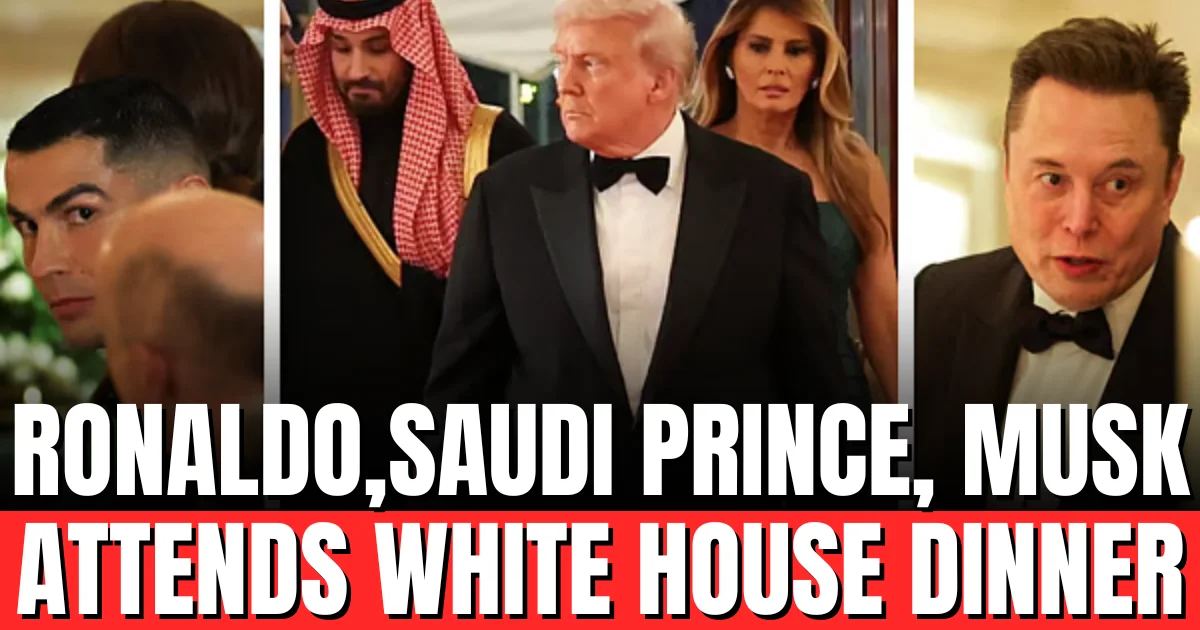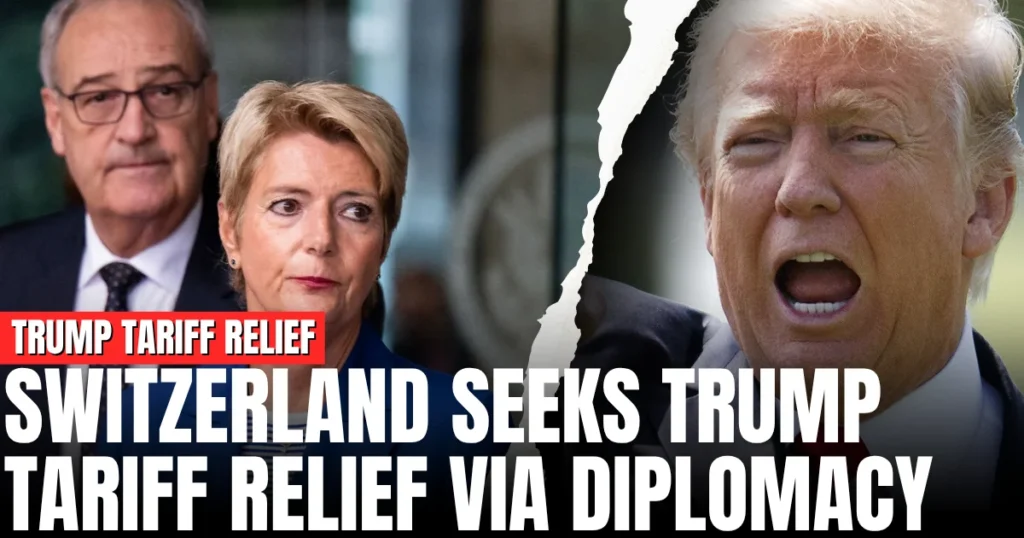Cristiano Ronaldo joins Saudi Crown Prince at White House state dinner. Analysis of sports diplomacy, US-Saudi relations, and cultural significance.
Table of Contents
Cristiano Ronaldo Attends White House State Dinner Alongside Saudi Crown Prince Mohammed bin Salman
Football superstar Cristiano Ronaldo made a rare political appearance at a White House state dinner honoring Saudi Crown Prince Mohammed bin Salman. The Portuguese athlete’s presence highlighted the evolving role of sports figures in international diplomacy and cultural exchange.
Ronaldo’s attendance reflects his prominent position within Saudi Arabia’s sports and cultural landscape since joining Al-Nassr football club. The state dinner showcased complex intersections between athletics, entertainment, business, and international relations.
Understanding State Dinner Significance
White House state dinners represent America’s highest diplomatic honor, reserved for strengthening relationships with important international partners. Guest lists receive meticulous attention, with invitations signaling political, economic, and cultural priorities.
These formal events blend ceremonial tradition with strategic relationship building. Every guest selection carries diplomatic meaning, from government officials to business leaders to cultural ambassadors.
State dinner purposes:
- Celebrating bilateral relationships between nations
- Facilitating informal dialogue between leaders
- Showcasing American hospitality and cultural values
- Strengthening economic and security partnerships
- Creating opportunities for relationship building beyond formal negotiations
Ronaldo’s inclusion among distinguished guests reflects recognition of sports’ diplomatic importance and his specific role bridging American, European, and Middle Eastern interests.
Ronaldo’s Saudi Arabia Connection
The football legend joined Saudi Arabian club Al-Nassr in late 2022, becoming the most prominent athlete in the kingdom’s ambitious sports development strategy. His presence transformed Saudi football’s global profile overnight.
The multi-year contract reportedly worth over $200 million annually made Ronaldo the world’s highest-paid athlete. Beyond financial terms, the arrangement positions him as ambassador for Saudi Arabia’s broader Vision 2030 modernization initiative.
Ronaldo’s Saudi role encompasses:
On-Field Performance
Leading Al-Nassr in domestic and international competitions while elevating league standards through his professionalism and skill. His presence attracts global attention to Saudi football.
Brand Ambassador
Representing Saudi Arabia’s sports ambitions internationally through his massive social media following and global recognition. Ronaldo’s endorsement carries weight across continents.
Tourism Promotion
Encouraging international visitors to experience Saudi Arabia through his visibility and positive messaging. His influence reaches demographics traditional tourism campaigns struggle to access.
Youth Inspiration
Motivating young Saudi athletes through clinics, appearances, and role modeling. His work ethic and professionalism set standards for emerging talent.
Sports Diplomacy’s Growing Importance
Ronaldo’s White House appearance exemplifies sports diplomacy—using athletic figures and events to advance international relations objectives. This soft power tool increasingly supplements traditional diplomatic channels.
Why sports diplomacy works:
Athletes transcend political divisions, connecting with audiences across ideological boundaries. Ronaldo commands respect from fans regardless of their government’s policies or political orientations.
Sporting events create neutral spaces for dialogue and relationship building. Shared enthusiasm for athletics provides common ground when other topics prove divisive.
Celebrity athletes reach demographics that traditional diplomats cannot access. Young people worldwide follow Ronaldo, creating influence channels beyond conventional government communications.
Historical sports diplomacy examples:
Ping-pong diplomacy between the United States and China in the 1970s helped thaw decades of frozen relations. Athletic exchanges preceded formal political rapprochement.
Muhammad Ali’s international goodwill missions demonstrated sports figures’ unique diplomatic capabilities. His global stature opened doors that formal ambassadors struggled to access.
Olympic Games traditionally serve diplomatic purposes despite official political neutrality. Host nation selections and participation decisions carry significant international relations implications.
US-Saudi Relations Context
The state dinner occurs within complex and sometimes controversial US-Saudi bilateral relations. The partnership involves significant economic, security, and energy cooperation alongside ongoing human rights concerns.
Key relationship dimensions:
Energy Partnership
Saudi Arabia remains crucial to global oil markets affecting American consumers and economic interests. Energy cooperation underpins much of the bilateral relationship despite US domestic production increases.
Security Cooperation
Military partnerships and intelligence sharing address mutual regional security concerns. Defense contracts generate substantial American economic activity and jobs.
Economic Investment
Saudi sovereign wealth funds invest billions in American companies, real estate, and financial markets. These capital flows support economic growth and job creation.
Counterterrorism Collaboration
Both nations share interests in combating extremist organizations. Cooperation in this area remains priority despite other disagreements.
Celebrity Guests at Diplomatic Events
Including entertainment and sports figures at state dinners reflects evolving diplomatic approaches recognizing soft power’s importance. These guests serve strategic purposes beyond adding glamour.
Strategic celebrity inclusion:
High-profile figures attract media coverage, amplifying diplomatic messages to broader audiences. Ronaldo’s presence generates headlines reaching people who ignore traditional political news.
Cultural ambassadors demonstrate relationship depth extending beyond government interactions. Sports and entertainment connections suggest genuine people-to-people ties supplementing official partnerships.
Celebrities facilitate informal networking and relationship building in relaxed settings. Conversations at state dinners often prove more productive than formal meeting rooms.
Other notable sports figures at diplomatic events:
Basketball stars attending Chinese state functions highlighted sports’ role in US-China relations. Athletic exchanges created dialogue opportunities during politically tense periods.
Tennis champions participating in cultural diplomacy initiatives demonstrated sports’ unifying potential. Individual athletes often serve as cultural ambassadors through international competition.
Public and Political Reactions
Ronaldo’s White House appearance generated varied responses reflecting broader debates about US-Saudi relations and sports diplomacy appropriateness.
Supportive perspectives:
Proponents view celebrity inclusion as pragmatic recognition of soft power realities. Athletes like Ronaldo influence millions worldwide, making their diplomatic participation strategically valuable.
Sports diplomacy advocates emphasize athletics’ unique ability to transcend political divisions. Ronaldo’s presence celebrates cultural connections beyond governmental disagreements.
Business communities appreciate economic relationship strengthening. Saudi investments and partnerships generate American jobs and economic opportunities worth cultivating.
Critical viewpoints:
Human rights organizations question celebrating relationships with governments facing serious criticism. They argue that celebrity glamour obscures legitimate concerns about civil liberties and governance.
Some political commentators view sports washing—using athletics to improve controversial regimes’ images—as problematic. Ronaldo’s involvement raises questions about athletes’ responsibilities regarding employer countries’ policies.
Labor advocates note concerns about worker conditions and rights protections. They argue that state dinner pageantry overlooks important social justice issues.
Economic Dimensions of Saudi Sports Investment
Saudi Arabia’s aggressive sports sector investment strategy, exemplified by Ronaldo’s recruitment, represents broader economic diversification efforts extending beyond petroleum dependence.
Vision 2030 sports components:
Major tournament hosting including potential World Cup bids positions Saudi Arabia as global sports destination. These events generate tourism revenue and international visibility.
Professional league development across multiple sports attracts international talent and audiences. Investment in infrastructure and player salaries elevates competitive standards.
Sports technology and innovation hubs aim to establish Saudi Arabia as leader in athletic performance science. These initiatives create knowledge economy opportunities beyond traditional energy sectors.
Economic implications for global sports:
Saudi spending reshapes international football economics, influencing player valuations and competitive balances. Traditional European powers adapt to new financial competition.
American sports marketing and management firms pursue Saudi partnerships and consulting opportunities. The kingdom’s sports ambitions create business development possibilities.
Ronaldo’s Personal Brand Considerations
Accepting Saudi employment involved complex personal brand calculations for Ronaldo. The decision affects his legacy, commercial opportunities, and public perception.
Brand strategy factors:
Massive financial compensation secures generational wealth and business investment capital. The contract provides resources for post-playing career ventures and philanthropy.
Association with Saudi modernization narratives positions Ronaldo as progressive change agent. This framing emphasizes positive contributions rather than controversial employer choices.
Continued global visibility maintains commercial appeal despite league competition level questions. His Saudi tenure keeps him prominent in ways European retirement might not.
Potential brand risks:
Critics questioning Saudi Arabia’s human rights record extend scrutiny to high-profile employees. Ronaldo faces pressure to address issues or risk reputation damage.
Playing outside elite European competition affects legacy discussions. Some analysts view Saudi move as competitive decline despite financial success.
What This Means for Future Sports Diplomacy
Ronaldo’s White House appearance may signal increasing acceptance of athlete-diplomats in formal international relations contexts. Sports figures could play expanding roles in cultural and business diplomacy.
Potential developments:
More athletes serving as official cultural ambassadors for nations and causes. Their unique platforms and global reach make them valuable diplomatic assets.
Increased sports figure participation in international business development. Athletes facilitate connections and opportunities beyond traditional diplomatic channels.
Greater scrutiny of athletes’ geopolitical roles and responsibilities. Public expectations for sports figures addressing employers’ policies may intensify.
Enhanced integration of sports initiatives into formal diplomatic strategies. Governments increasingly recognize athletics’ soft power potential.
FAQ SECTION
1. Why was Cristiano Ronaldo invited to a White House state dinner?
Ronaldo’s invitation reflects his prominent role in Saudi Arabia’s sports and cultural landscape since joining Al-Nassr football club. As arguably the most recognizable athlete associated with Saudi Arabia’s modernization efforts, his presence symbolizes the sports diplomacy dimension of US-Saudi relations. State dinner guest lists strategically include cultural and business figures alongside government officials to showcase relationship breadth.
2. What is sports diplomacy and why does it matter?
Sports diplomacy uses athletic figures and events to advance international relations objectives through soft power. Athletes like Ronaldo transcend political divisions, reaching audiences that traditional diplomats cannot access and creating neutral spaces for dialogue. Their global influence and cross-cultural appeal make them valuable ambassadors for cultural exchange, relationship building, and messaging beyond conventional governmental channels.
3. How much is Ronaldo’s contract with Saudi Arabia worth?
Ronaldo’s multi-year contract with Al-Nassr reportedly exceeds $200 million annually, making him the world’s highest-paid athlete. Beyond salary, the arrangement positions him as ambassador for Saudi Arabia’s Vision 2030 modernization initiative. His role encompasses on-field performance, brand representation, tourism promotion, and youth inspiration, extending far beyond typical athletic employment.
4. Do athletes have responsibilities regarding their employers’ politics?
This remains a debated question in sports ethics. Some argue that athletes accepting employment from controversial governments or organizations should address associated political issues. Others contend that sports figures shouldn’t face expectations beyond their athletic roles. Increasingly, public scrutiny extends to athletes’ employment choices, particularly when employers face human rights criticism.
5. How does Saudi Arabia use sports for international image building?
Saudi Arabia’s sports investment strategy serves multiple purposes including economic diversification, tourism development, youth engagement, and international image enhancement. Recruiting global stars like Ronaldo, hosting major events, and developing professional leagues increase positive international visibility while showcasing modernization efforts. Critics describe this as “sports washing”—using athletics to improve controversial regimes’ reputations.
CONCLUSION
Cristiano Ronaldo’s appearance at the White House state dinner alongside Saudi Crown Prince Mohammed bin Salman illustrates sports’ evolving role in international diplomacy. The football legend’s presence symbolizes complex intersections between athletics, business, culture, and geopolitics.
As Saudi Arabia continues its ambitious sports development strategy and nations increasingly recognize athletes’ soft power potential, such diplomatic appearances may become more common. Sports figures command global attention and influence that traditional diplomats cannot replicate, making them valuable assets in international relationship building.
The event raises important questions about athletes’ roles in geopolitics, the appropriateness of sports diplomacy, and how entertainment figures navigate employment by controversial governments. These debates will likely intensify as sports and politics continue intertwining in our globalized world.
Should athletes play diplomatic roles, or should sports remain separate from politics? How do you view celebrity involvement in international relations? Share your perspective in the comments!

